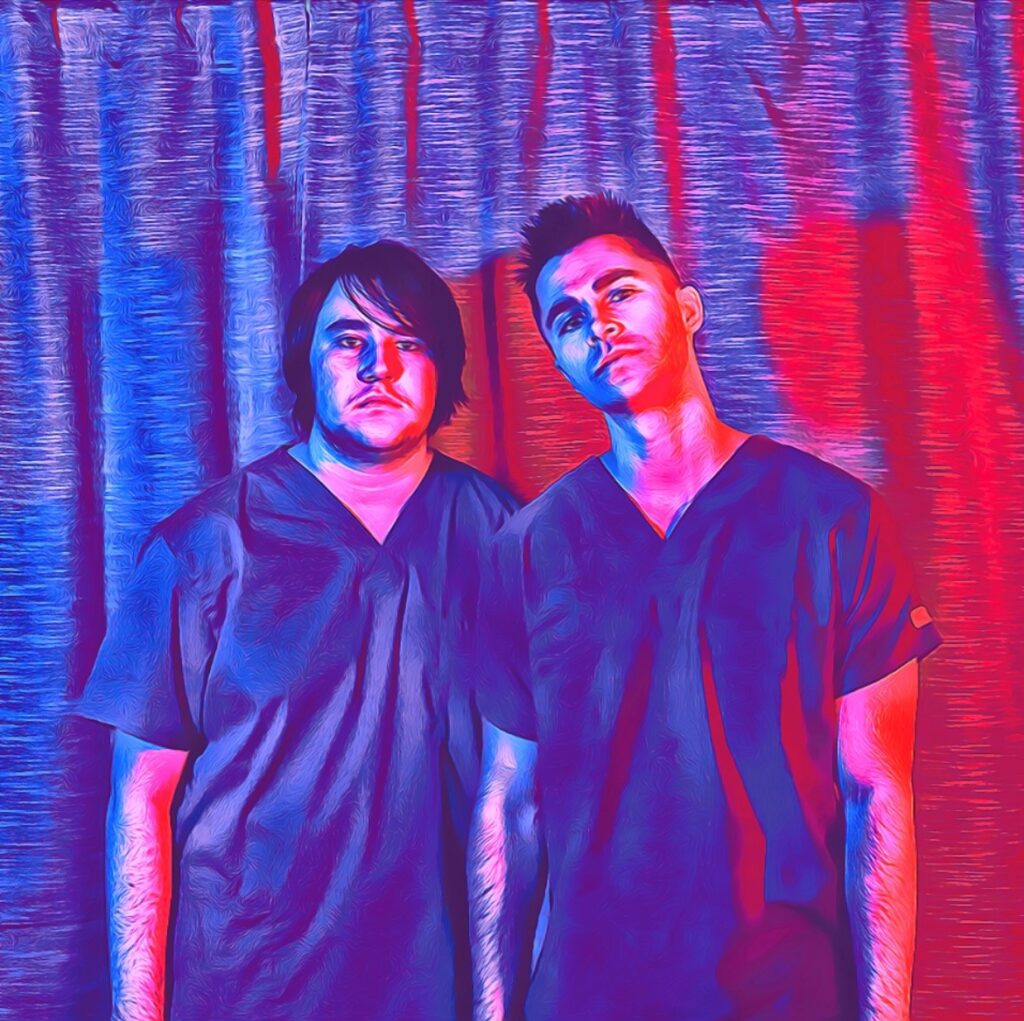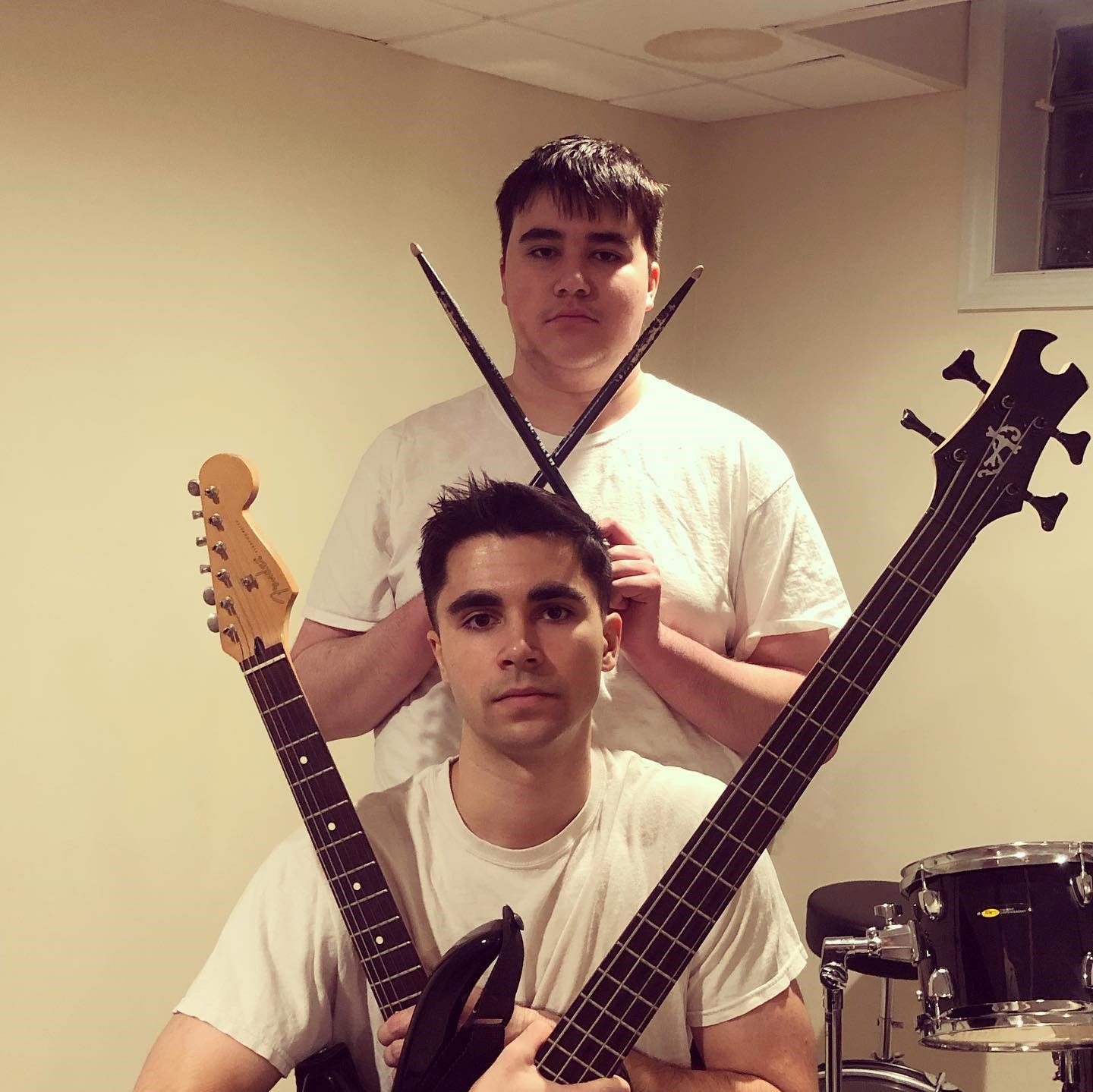Brothers Millen (guitar, vocals) and Arjun Schuchert (drums, vocals) formed the alt-punk band Griffen Handshake in Pittsburgh, Pennsylvania. The group’s debut album, “My Box,” was released in April 2021. “All My Friends Wanna Be Doctors,” the band’s brand-new single, was just released to mark the beginning of a new musical era. Their lyrics make observations about social media, pop culture, mental health, and the external pressures of forging a career.
This song does not disparage doctors. It is aimed at people who put others down for what they want to do in life by acting overly qualified. The song’s catchy refrain, “All my friends they wanna be doctors, while I’m just a wannabe punk rocker” perfectly expresses how it feels to see your friends succeed and pursue pre-professional goals while all you want to do is follow your own path, perhaps by joining a punk band. Check out the song and the exclusive interview below:

1. Can you tell us a bit about where you come from and how it all got started?
GRIFFEN HANDSHAKE: We are from Pittsburgh, Pennsylvania. We are a two-piece band and are brothers. Ever since middle school, my brother, Arjun, and I have been playing music together in our basement. At the beginning of high school, I got into songwriting. From there, I started showing Arjun some songs, and we started performing them live.
2. Did you have any formal training or are you self-taught?
GRIFFEN HANDSHAKE: We are formally trained in voice, guitar, and drums. Bass and piano I picked up on my own, but my music teachers in voice and guitar really helped me get started. It was funny, I started guitar lessons when I was in 5th grade. For the first 3 years of taking lessons, I absolutely hated it and wanted to quit. My mom made me continue to take lessons and luckily after 3 years, I fell in love with it.
Arjun is masterful behind the kit. I am blown away by what he does. He’s always had a natural feel for rhythm. I kinda like to think we developed a little sense of musicality from playing Rockband 2 when we were little. Arjun would always play drums, and I’d play guitar. But as soon as he got behind a real drumset, he has always been remarkable.
3. Who were your first and strongest musical influences and why the name ‘GRIFFEN HANDSHAKE’?
GRIFFEN HANDSHAKE: The cool thing is it always changes for us. I can remember when I was 13, what got me into punk rock was Green Day’s Uno, Dos, and Tré trilogy. But we go through different phases. Like this past summer we were super into ska punk with bands like The Interrupters and No Doubt. We also keep track of what’s going on in pop music. Harry’s House and Future Nostalgia are two albums we’ve been listening to a lot recently. The Weeknd is also so fun to listen to. One of our main goals is to develop a sound that’s unique to us. When we listen to other artists, we’re more focused on the spirit of who they are and their performance rather than the actual sound or genre because our genre is very different than many of the people we listen to. And the name Griffen Handshake is a secret for now.
4. What’s your view on the role and function of music as political, cultural, spiritual, and/or social vehicles – and do you try and affront any of these themes in your work, or are you purely interested in music as an expression of technical artistry, personal narrative, and entertainment?
GRIFFEN HANDSHAKE: Music definitely has the power to impact multiple facets of life such as politics, social issues, spirituality, and culture as a whole. Up until this point, our music has commented a lot on the media landscape of today’s world as well as the external pressure imposed by others on our lives. For instance, our next song that we will release, “Cancel”, talks about living in a world of cancel culture. “All My Friends Wanna Be Doctors” talks about the pressure of not pursuing a pre-professional career. However, looking ahead, our music will certainly touch on some of these additional topics you mentioned. Some music can be purely entertainment, but our main goal as a band is to inspire positive change and to give our voice on issues that are prevalent in this world.

GRIFFEN HANDSHAKE:
We are trying to focus on the product we can create for our listeners rather than what we are getting in return for putting music out there. All we can do is put music out there we are proud of and share our story. If one person really resonates with it and latches onto what we are trying to do, then it’s worth it.
6. Could you describe your creative processes? How do usually start, and go about shaping ideas into a completed song? Do you usually start with a tune, a beat, or a narrative in your head? And do you collaborate with others in this process?
GRIFFEN HANDSHAKE:
The cool thing is the initial idea for the song is always different. I make it an exercise to try and find different starting points to create a song. Guitar being my first instrument, many songs I have made start with a guitar riff. However, as I have branched off to piano and voice, sometimes a chord progression on the piano provides the foundation for the song. Other times, I am coming back from the gym and a melody pops into my brain and I go to record it on voice memos. I also like to use Logic Pro X to find a melody or progression that works. I think it’s important to always change it up because it can be very easy to get into a habit of seeing music a certain way. For example, seeing the fretboard on a guitar is one way to look at music. But those same notes, are presented differently on a piano. The way your hands are placed on the instrument when playing chords varies if you are playing piano or guitar. So you end up creating a song on piano that you never would’ve created if you wrote it on guitar. Switching it up has always been key for us. In terms of collaboration, we had some friends collaborate with us on our debut album, “My Box”, and we are always open to collaborate with anyone as we move forward.
7. What has been the most difficult thing you’ve had to endure in your life or music career so far?
GRIFFEN HANDSHAKE:
One of the hardest things with pursuing music for us has been being patient. We officially started Griffen Handshake in 2019. I was still in college at that point, and Arjun was in high school. It took us a bit to get releases going. We didn’t know too much about recording at the beginning, so getting to a point where we could release something was difficult. Also, dealing with the commitment to school as well as personal hurdles we have faced individually has been the hardest part since we created the band. We’re fortunate that we feel like we are moving past some of those obstacles, so we can pursue music with 100% intensity. As cliche as it sounds, the most difficult thing has come internally for us. We’re still working on ourselves, mostly mentally, but the big thing is focusing on doing the work and why it is important more so than the outcome of the product at this stage in our career.
8. With social media having a heavy impact on our lives and the music business in general, how do you handle criticism, haters, and/or naysayers in general? Is it something you pay attention to, or simply ignore?
GRIFFEN HANDSHAKE: This is something we talk a lot about in our music and what we will continue to talk about. We are still figuring out how to deal with that. However, we try to focus on the people who have cared to listen to our music and who care about us as people in general. That’s what it’s more about rather than the negative comments. And especially when it comes to punk, there will always be some negative response. Constructive criticism can be helpful, but sometimes it’s not that and in that case, the more disrespectful comments we won’t pay attention to.
9. Creative work in a studio environment, or interaction with a live audience? Which of these two options excites you most, and why?
GRIFFEN HANDSHAKE: It’s interesting I feel like for many people it’s a very close call between these two. For us, we by far love the live environment and playing a show. The studio can be stressful because there is a time crunch. Also, the process of finding the best sound can really wear you down. The live show can be very uplifting. Even when there are two people there, being able to share your music with others is special. That being said, songwriting in a non-studio environment is one of my favorite things to do. There’s nothing like creating music at 2 am with nothing around but a guitar or piano.
10. Do you think is it important for fans of your music to understand the real story and message driving each of your songs, or do you think everyone should be free to interpret your songs in their own personal way?GRIFFEN HANDSHAKE: We think it depends on the song and in many cases it can be both. There are certain songs that are created from a very specific story and perspective that it is vital that the story behind the song is known. We felt that for “All My Friends Wanna Be Doctors” it would be important to describe the inspiration behind the lyrics and how it’s not anti-doctor but rather a song about calling out anyone who puts others down for what they want to do in life. However, the audience’s story is just as important. If they run with a meaning, that is just as powerful. It’s a crucial part of music for each listener to relate to a song in their own unique way and to tell their own story.
KEEP IN TOUCH:
FACEBOOK | INSTAGRAM | TWITTER | SPOTIFY | TIKTOK | WEBSITE | YOUTUBE

